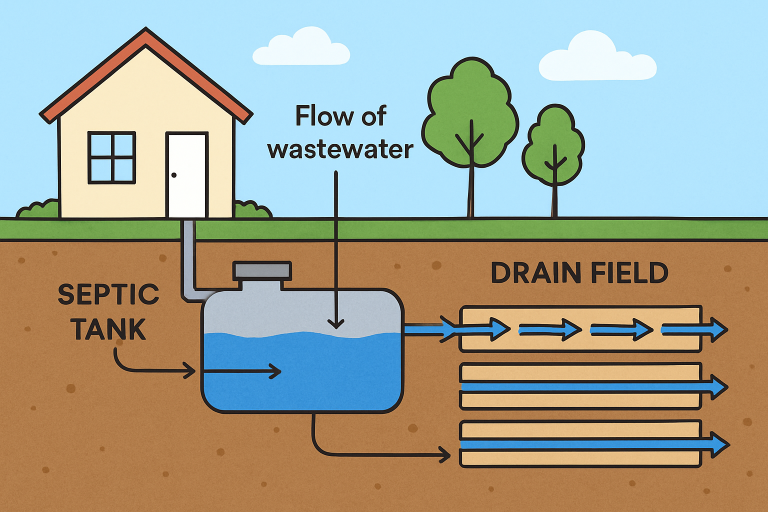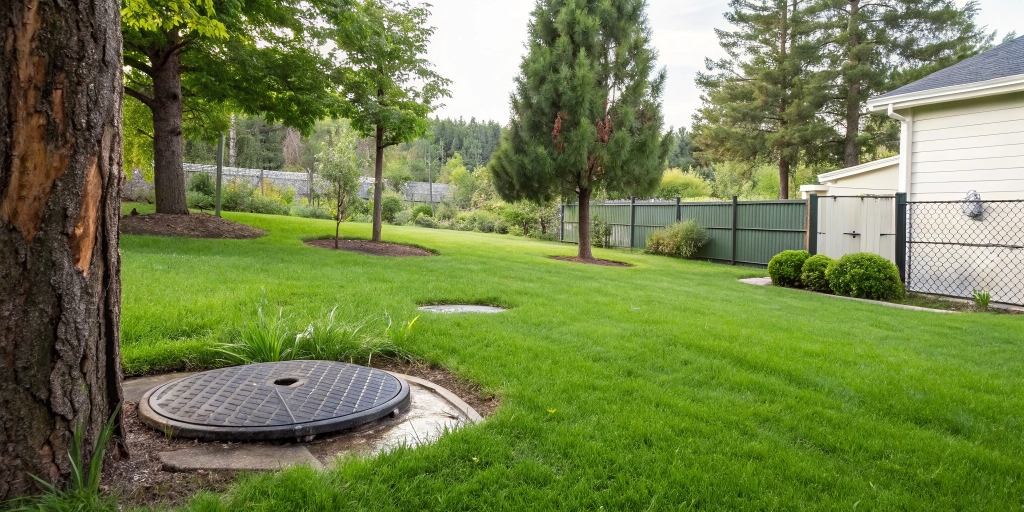Why Septic System Maintenance Matters
Septic systems are an essential part of your home’s infrastructure. They manage wastewater safely when municipal sewers aren’t available. These underground systems separate and treat waste through natural filtration. A properly functioning septic system protects your family’s health, keeps property value high, and minimizes impact on the surrounding environment.
Ignoring regular maintenance can lead to system clogs, backups, and groundwater contamination. Expensive repairs, property damage, and the risk of exposing your community to harmful pathogens are real concerns with neglected systems. That’s why finding reliable support, such as septic tank draining Orlando FL, is vital for long-term home protection.
Beyond personal risk, failed septic systems can decrease property value and threaten local water sources. Experts say maintaining your system and responding quickly not only preserves home equity but also keeps neighborhoods safe. Routine septic tank care extends system lifespan and avoids costly emergencies. Being proactive in septic care can save money over the life of your home.

Simple Steps Every Homeowner Can Take
To maintain a smooth septic system, follow these daily habits: flush only human waste and toilet paper, scrape food scraps, use screens over drains, and reduce harsh cleaners. Space out water-intensive activities, avoid flushing hygiene products, grease, or household chemicals, fix leaky faucets and toilets, and avoid parking or building over your septic tank or drain field. These habits will help reduce stress and ensure the system’s optimal functioning.
Recognizing Early Signs Of Trouble
Septic warning signs include slow drains, gurgling plumbing, sewage odors, and unusually wet spots. These signs should be spotted early to avoid repair costs and system downtime. If pooling water or backups occur, contact a professional immediately to prevent irreversible damage. This is especially important before selling a home, as failing systems can halt real estate transactions.
Routine Inspection And Pumping
Most septic tanks require inspections every 1 to 3 years, with pumping around 3 to 5 years, depending on household size and usage. Professionals check for leaks, sludge levels, and corrosion during service, catching issues early. They also inspect tank integrity, baffles, filters, drain field function, improper waste disposal patterns, and tree roots or surface water infiltration. This comprehensive assessment is crucial for maintaining optimal septic system health.
Understanding And Following Local Regulations
Local governments often require specific maintenance, inspections, and permits for septic systems. Homeowners are responsible for complying to avoid fines and ensure property safety. Regulatory information can be found on county or state health department websites or local septic contractors’ guidance. Staying informed prevents legal issues and helps plan system upgrades.
Eco-Friendly Septic Practices
Choose septic-safe products like toilet paper and cleaning products, avoid bleach-heavy cleaners, and use biodegradable laundry detergents and soaps to maintain beneficial bacteria in your septic system. Proper system care prevents contaminants from leaching into groundwater or threatening nearby communities.
Preparing For Major Repairs And Replacement
Budget for major septic work by starting a savings plan for repairs or replacement. Regular inspections can provide early warnings for upgrades. Key indicators for replacement include frequent backups, persistent odors, standing water in the drain field, drain field failure or tank cracks, and potential changes in local regulations. Regular maintenance is crucial for maintaining a septic system.
Conclusion
Proactive septic system maintenance keeps your home safe, valuable, and environmentally responsible. With the right habits, regular inspections, and timely professional help, you’ll preserve your investment for decades. Stay informed, follow local guidelines, and contact specialists as needed—your property and community will thank you.









+ There are no comments
Add yours